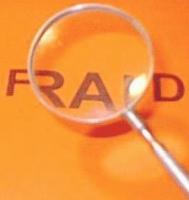Emphasizing the specific risks posed by the intentional and fraudulent adulteration of food ingredients for economic gain, the United States Pharmacopeial Convention (USP) has submitted a public comment letter to the U.S. Food and Drug Administration (FDA) urging the FDA to reconsider its strategy to address Economically-Motivated Adulteration (EMA) of food ingredients.
 “Economically-motivated adulteration of food ingredients is a significant concern, with its own challenges, posing a threat to public safety, eroding consumer confidence in the integrity of food and disrupting markets by placing control of the supply chain in the hands of criminals,” said Ronald Piervincenzi, Ph.D., chief executive officer at USP. “EMA should be addressed as its own unique category of food adulteration.”
“Economically-motivated adulteration of food ingredients is a significant concern, with its own challenges, posing a threat to public safety, eroding consumer confidence in the integrity of food and disrupting markets by placing control of the supply chain in the hands of criminals,” said Ronald Piervincenzi, Ph.D., chief executive officer at USP. “EMA should be addressed as its own unique category of food adulteration.”
USP recommends that FDA considers a framework tailored to the specific nature of EMA. While USP agrees that it is not ideal to handle EMA under a typical food-defense/vulnerability approach, the organization says EMA would be equally misplaced under preventive controls. The suggested approach would include a vulnerability assessment mostly focused on determining the likelihood of EMA occurring, but also including a component of public health risk assessment; a second component would be a vulnerability control plan to mitigate these risks.
